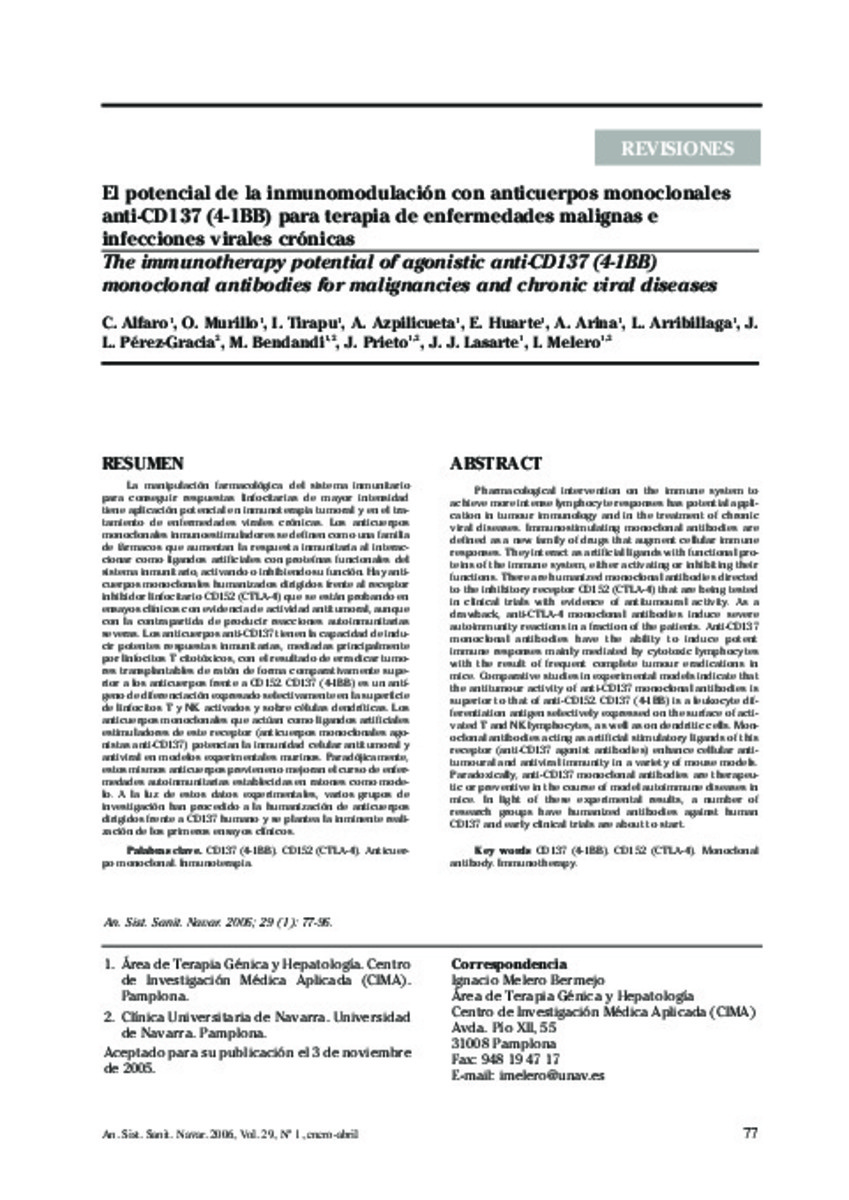The immunotherapy potential of agonistic anti-CD137 (4-1BB) monoclonal antibodies for malignancies and chronic viral diseases
Keywords:
CD137 (4-1BB)
CD152 (CTLA-4)
Anticuerpo monoclonal
Inmunoterapia
Publisher:
Gobierno de Navarra, Departamento de Salud
Citation:
Alfaro C, Murillo O, Tirapu I, Azpilicueta A, Huarte E, Arina A, et al. The immunotherapy potential of agonistic anti-CD137 (4-1BB) monoclonal antibodies for malignancies and chronic viral diseases. An Sist Sanit Navar 2006 Jan-Apr;29(1):77-96.
Statistics and impact
0 citas en

0 citas en

Items in Dadun are protected by copyright, with all rights reserved, unless otherwise indicated.










